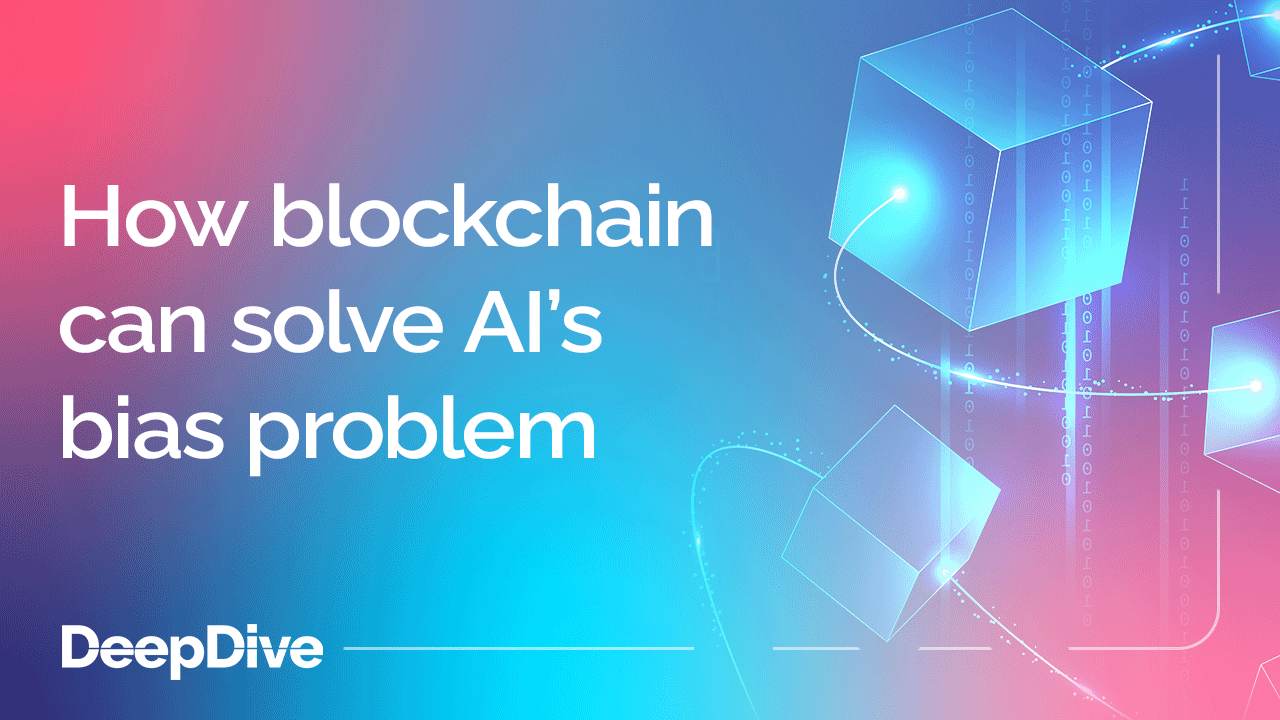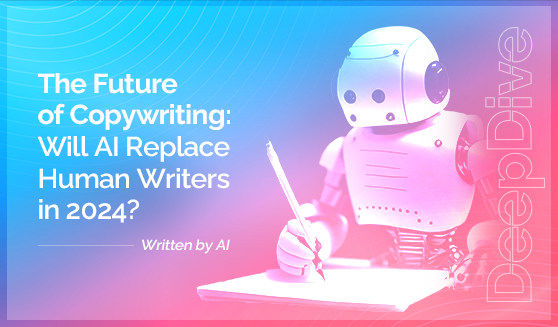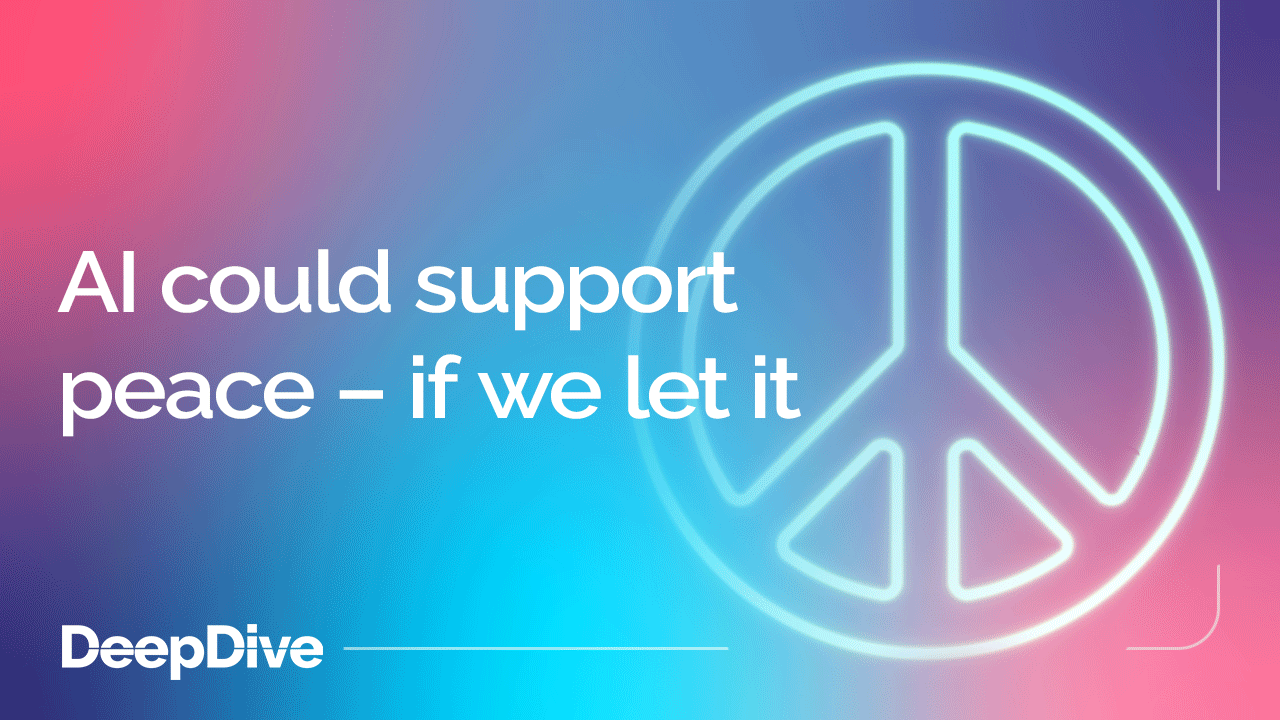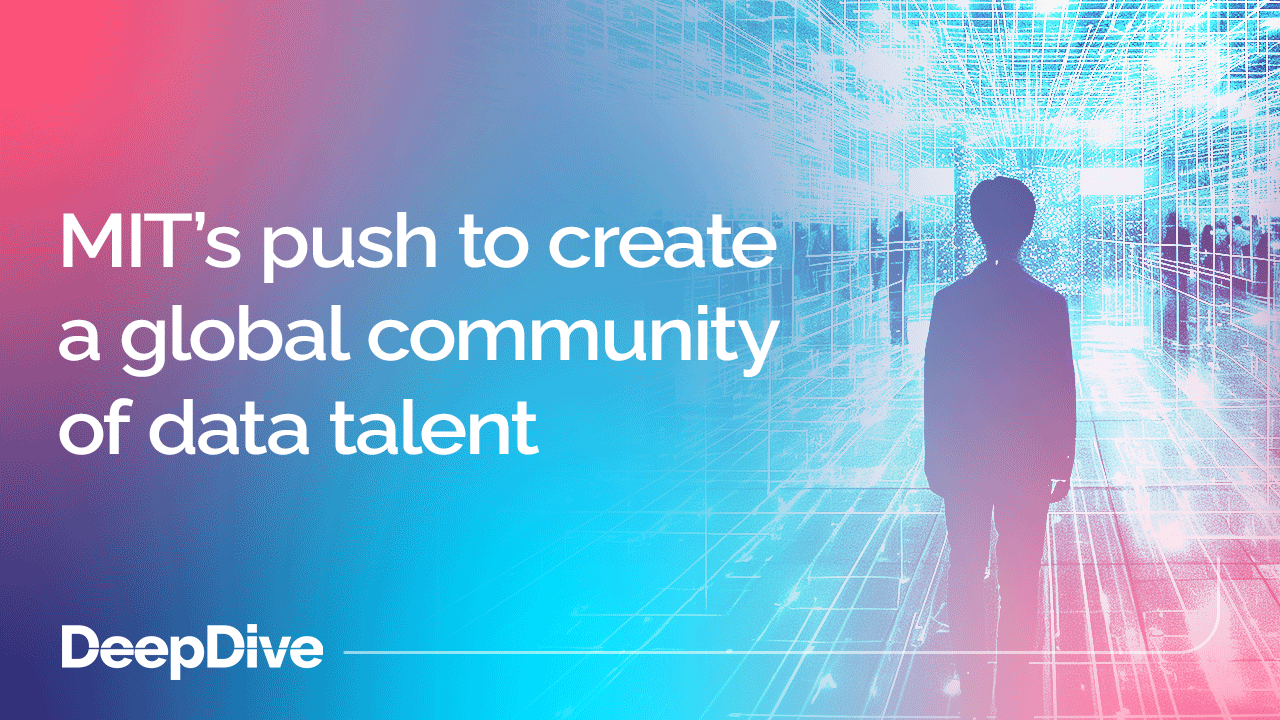

Will AI take over copywriting?

We asked AI.
Welcome to the 30 new deep divers who have joined us since last Wednesday. If you haven’t already, subscribe and join our community in receiving weekly AI insights, updates, and interviews with industry experts straight to your feed.
----------------------
Artificial Intelligence (AI) has made tremendous strides in recent years, revolutionising various industries. From self-driving cars to personalised recommendations, AI has proven its capabilities in tackling complex tasks. However, as AI continues to advance, concerns arise over its potential to replace human workers, with copywriting being no exception. In this article, we will explore whether AI will take over copywriter jobs in 2024, considering both the advancements and limitations of AI in creative writing.
The Rise of AI in Copywriting
AI-powered writing tools have gained significant popularity in recent times. These tools leverage natural language processing and machine learning algorithms to generate human-like content. With the ability to analyse large datasets, they can mimic the writing styles of human authors and generate compelling copy.
Advantages of AI in Copywriting
Efficiency: AI-powered writing tools can handle repetitive and time-consuming tasks such as content generation, enabling human writers to focus on higher-level creative work.
Personalisation: AI can analyse vast amounts of consumer data, leading to the creation of personalised and targeted content that resonates with specific audiences.
Speed: AI algorithms can produce content at an impressive pace, allowing businesses to meet tight deadlines and maintain a consistent publishing schedule.
Content Optimisation: AI algorithms can analyse website performance and user behaviour data to optimise the structure, wording, and layout of copy, resulting in enhanced engagement and conversions.
Limitations of AI in Copywriting
Creativity and Emotional Intelligence: Copywriting often requires a level of creativity and emotional intelligence that AI struggles to replicate. The ability to understand human emotions, incorporate humour, or adapt tone based on context is a skill unique to human writers.
Contextual Awareness: AI may struggle to comprehend the broader context of a particular piece of content, leading to the production of copy that lacks cohesiveness or fails to capture the intended message.
Unpredictability: Human writers possess the innate ability to adapt and respond to unexpected situations, such as incorporating real-time events or addressing controversial topics. AI algorithms, on the other hand, may produce inaccurate or inappropriate content in such situations.
The Human Touch
While AI-powered writing tools offer unprecedented efficiency and accuracy, the role of human copywriters remains crucial. The human touch brings a level of nuance, creativity, and emotive intelligence that AI struggles to match. Human writers can infuse copy with unique perspectives, storytelling techniques, and subjective insights that resonate with diverse audiences.
In 2024, it is unlikely that AI will fully replace human copywriters. While AI-powered writing tools will continue to enhance efficiency and productivity, they cannot replace the human capacity for creativity, adaptability, and emotional intelligence. Instead, AI tools will likely complement and support human writers, facilitating data analysis, content optimisation, and content generation, ultimately improving the overall quality of copy produced.
As technology evolves, the specter of AI replacing human copywriters looms large. However, the nuanced nature of copywriting, requiring creativity, adaptability, and emotional intelligence, makes it unlikely that AI will fully take over this profession by 2024. Instead, AI will augment the capabilities of human writers, empowering them to produce higher-quality content efficiently and adapt to a rapidly changing digital landscape. The future lies in the collaboration between humans and AI, combining the best of both worlds to create compelling and engaging copy.
If you enjoyed this content and want to learn more about the latest in AI, subscribe to our YouTube channel, where we upload new videos every week featuring leading AI industry experts like Pascal Bornet (Chief Data Officer, Aera Technology), Cassie Kozyrkov (Chief Decision Scientist, Google), Betsy Greytok (Vice President, Ethics amp; Policy, IBM) and more at #DeepFest23. You can also register for DeepFest 2024.
Interested to hear more about what AI has to say about other topics? Let us know!





